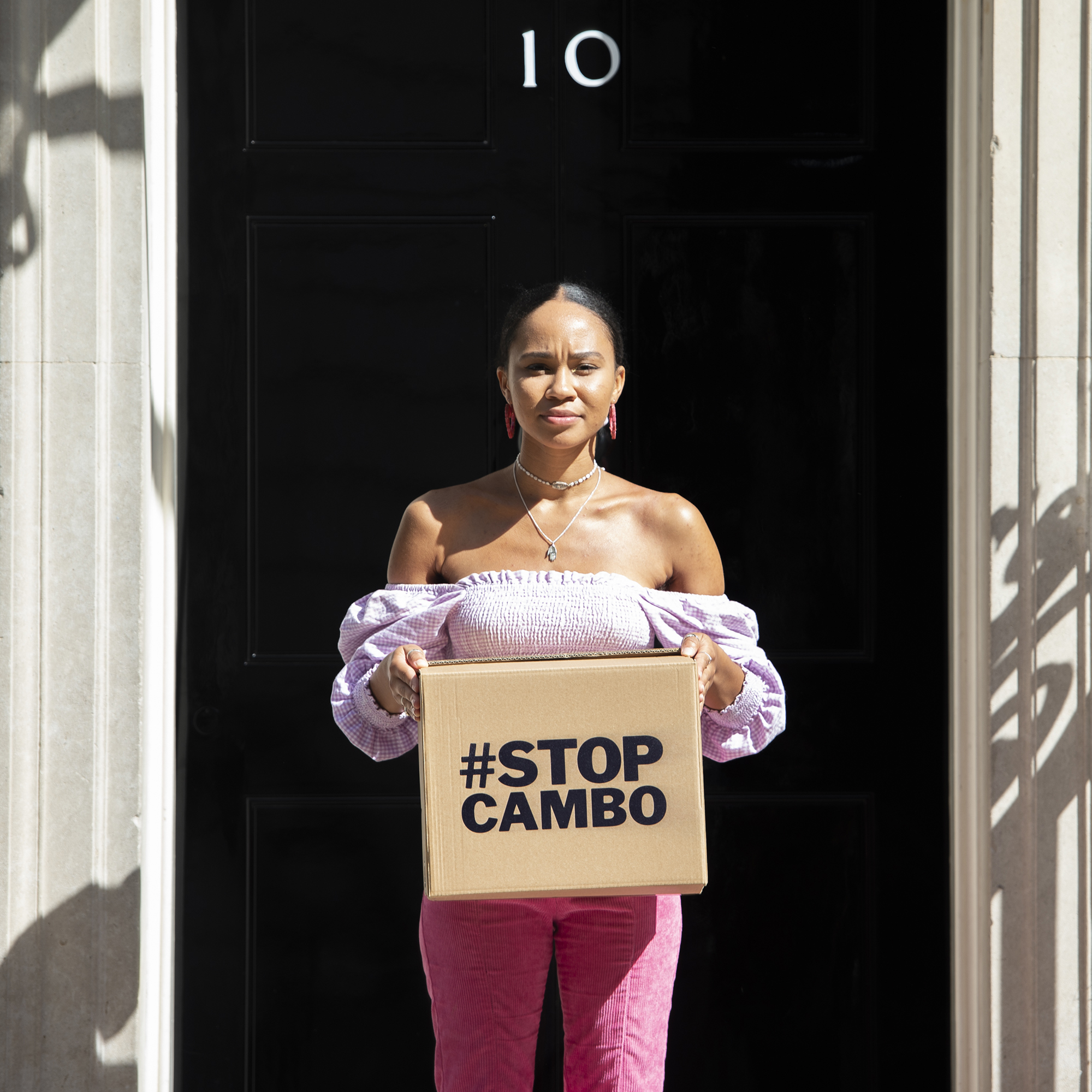"Climate justice offers us a pathway to a world where all of us are free”
29 Nov 2023
At just 25-years-old, Mikaela Loach has already achieved more than many people could manage in a whole lifetime. And yet, freshly graduated from university, she’s just getting started.
Alongside fellow Paid To Pollute campaigners, in the past few years, the young activist has taken the UK government to court over its public payments to fossil fuel companies, built a social media community of more than 180,000 like-minded people, launched a successful podcast, and penned a bestselling book, It’s Not That Radical, which explores the intersectional issues of capitalism, white privilege, poverty, and climate change.
If all that wasn’t enough, the articulate campaigner has also taken part in countless protests, including camping outside Westminster Abbey, alongside studying for a medical degree at the University of Edinburgh, which involved completing clinical placements throughout the pandemic.
Here, Mikaela, who has been named as one of the most influential women in the UK climate movement by the likes of Forbes, Global Citizen and BBC Woman’s Hour, speaks to Children in Scotland about her journey from teen activist to fighting for climate justice on a world stage – and how our young people can do the same by working together for collective change.
Alice Hinds: Many children and young people feel their opinions are not valued. Having got involved in activism at a young age, what helped you find your voice?
Mikaela Loach: I think it was just knowing that nothing has ever changed passively in this world. If we want things to change, we have to make them change.
As young people, we’re often told that we are naive or immature, and we don’t understand the world for wanting things to be different, wanting a world where everyone is safe and has dignified and free lives. But, actually, what is often characterised as naivety is our greatest strength. We can see that so much of this world doesn’t make any sense, and rather than allowing ourselves to be shut down by other people, we should instead say over and over again – ‘this world does not make sense and that we want something different. We want something safer and better. We deserve that and we can get that.’
When it comes to climate crisis, young voices in particular are so important. We are one of the most impacted groups in this world, and we are going to be impacted disproportionately by this crisis. It’s so important that we do speak out, and realise that so many of the liberties and freedoms that we have now are because other people chose to be brave. Whether it was the civil rights movement, women’s rights and suffrage, or disability justice, people put their heads above the parapet and spoke out – and that’s how change happens.
AH: Within your best-selling book, It’s Not That Radical: Climate Action to Transform Our World, you talk about “active hope”– do you think there is a risk of young people, in particular, struggling with eco-anxiety and feeling hopeless about their future?
MK: I talk about active hope because I see hope as an active stance. Often, we’re told that things, the world, will just get better over time – but it’s not passive, it’s an active process, and we all have to be part of making the world better.
Eco-anxiety is rife in young people, we feel so anxious about our future. That anxiety comes from feeling that there’s nothing that we can do about it, as if the future has already been written and we have to just be OK with it. We can combat that by realising that we do have agency, we do have power, we can do things, and the future is not written – we are the ones writing the future, so we have to have the bravery to write something different.
AH: Alongside climate change, Scotland’s younger generations are facing a plethora of injustices that will impact their future. How do you remain optimistic in the face of so many challenges?
MK: It’s hard. All the oppressive issues in this world are connected to each other. There is no single issue struggle because we do not live single issue lives, as the great [American writer] Audre Lorde said. I understand that if all these issues are connected – and in my work I have an intersectional lens that sees these connections – then I’ll know that the work I’m doing to unravel one part of the oppression will unravel the whole tapestry. It reminds me that what we’re fighting for is not just one siloed liberation, it’s the liberation of all of us – and that’s exciting. Climate justice offers us a pathway to a world without misogyny, without homophobia, without racism, without classism, without transphobia. A world where all of us are free. We can do that, but we have to fight for that. Even just saying that has brought me some more hope.
AH: Do you believe politicians and world leaders have a responsibility to future generations when it comes to actively tackling climate change?
MK: Absolutely. Politicians and world leaders should always have a responsibility to future generations when they’re making any policy, but especially with the climate crisis because it is so urgent. For future generations, we need to have a policy of no new oil and gas and scaling down fossil fuels rather than scaling them up. Having no new oil and gas is key if we want to have future generations and if we want to have a world for us to live in.
This excerpt was taken from Issue 5 of Insight, the bi-annual publication for Children in Scotland members.
To read the full interview, you'll need a digital subscription, which costs just £10 per year and provides access to two issues. For more information, contact Alice Hinds: ahinds@childreninscotland.org.uk
Already a member? Click here to read Insight Issue 5

About the author
Mikaela Loach is a climate justice activist and best-selling author
Click here for more
Insight Issue 5
Find out what's inside the latest issue. Illustration by Ally McKay
Click here to read
The Learning Guide: July-December 2023
Discover the latest learning opportunities
Click here to read
Join us in membership
Insight is just one of many benefits of membership of Children in Scotland
Find out moreChanging our World
Find out more about our children and young people's advisory group
Click here to access